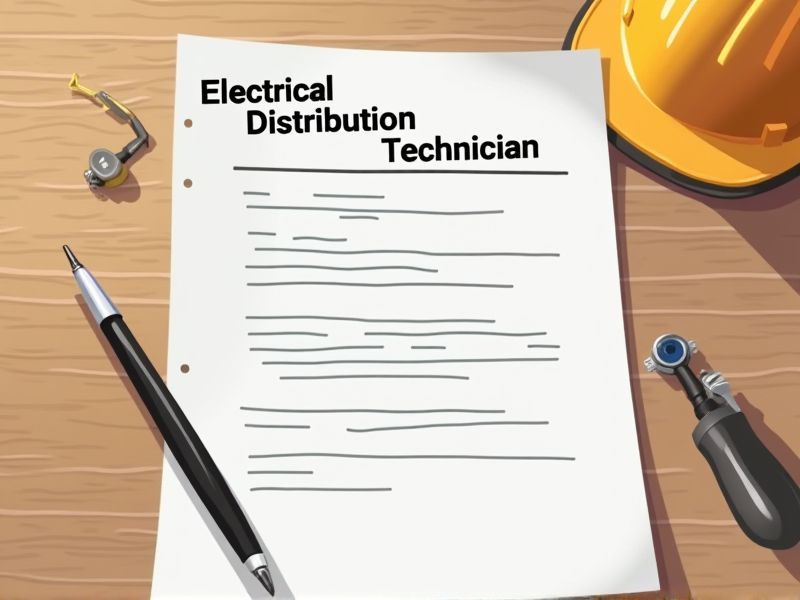
Electrical Distribution Technicians are responsible for ensuring the safe and efficient delivery of electricity from power plants to consumers, which involves working with complex systems and potentially hazardous conditions. To mitigate the risks associated with the job and maintain industry standards, technicians are often required to hold specific certifications that demonstrate their competence and adherence to safety protocols. These certifications also help validate their understanding of electrical theories and practical applications, establishing credibility and enhancing job prospects. Here are some important certifications you may need to become an Electrical Distribution Technician.
OSHA 10-Hour Construction Safety Certification
The OSHA 10-Hour Construction Safety Certification is needed for Electrical Distribution Technicians to reduce the frequency of workplace accidents and ensure compliance with safety regulations. Electrical work involves high-risk environments, so the certification provides essential training in hazard recognition and risk minimization. Employers benefit from a workforce trained in OSHA standards, which can lead to fewer work stoppages and lower insurance costs. Enhanced safety knowledge among technicians can improve project timelines and reduce liability issues.
OSHA 30-Hour General Industry Safety Certification
Electrical Distribution Technicians face high-risk environments, where OSHA 30-Hour General Industry Safety Certification educates them on hazard recognition and prevention. This certification ensures compliance with federal regulations, directly impacting workplace safety and legal standards. Enhanced knowledge reduces accident rates, fostering a safer working environment and minimizing downtime. Employers prefer certified technicians, as it decreases liability insurance costs and boosts operational efficiency.
NFPA 70E Electrical Safety Certification
NFPA 70E Electrical Safety Certification is crucial because it ensures technicians understand and adhere to established safety standards, minimizing risks of electrical accidents. The certification enhances a technician's knowledge on how to properly assess electrical hazards, leading to safer work environments. Adherence to these standards often results in decreased downtime and equipment damage, positively impacting operational efficiency. Employers benefit from reduced liability and insurance costs when technicians are certified, aligning with regulatory compliance demands.
Arc Flash Hazard Training Certification
Arc Flash Hazard Training Certification ensures electrical distribution technicians understand risks associated with arc flash incidents, reducing the likelihood of serious injuries. Acquiring this certification equips technicians with the knowledge to implement safety protocols, minimizing equipment damage and enhancing system reliability. Occupational Safety and Health Administration (OSHA) regulations often mandate such training to comply with workplace safety standards. Technicians with this certification contribute to creating a safer work environment, promoting overall workplace safety culture.
Lockout/Tagout (LOTO) Certification
Accidents often occur in electrical environments, and the Lockout/Tagout (LOTO) Certification significantly reduces this risk by ensuring technicians properly de-energize equipment before maintenance. Workers without LOTO training are more likely to overlook critical safety protocols, increasing the chance of electrical shock or equipment-related injuries. OSHA regulations mandate LOTO adherence to ensure legal compliance and workplace safety standards. Certified technicians demonstrate a higher understanding of hazard control, minimizing downtime and enhancing operational efficiency.
Confined Space Entry Certification
Confined Space Entry Certification is essential for electrical distribution technicians because it equips them with the knowledge to safely navigate and work in enclosed areas, reducing the risk of incidents. Working in confined spaces often involves exposure to hazardous atmospheres, such as toxic gases, which require specific safety measures. The certification ensures technicians are trained in proper ventilation techniques and emergency procedures, minimizing health risks. Many regulations mandate certification for compliance, ensuring workplace safety standards are met and legal liabilities are minimized.
CPR and First Aid Certification
Having CPR and First Aid certification can significantly increase an electrical distribution technician's ability to respond effectively in emergencies, potentially reducing the severity of injuries on-site. Electrical technicians often work in environments where accidents, including electric shock or falls, can occur, and immediate medical assistance could be critical. Employers prioritize safety certifications as it enhances workplace safety culture and compliance with occupational health standards. These certifications signal a commitment to safety and may provide technicians a competitive edge in the job market.
Electrician License (Apprentice/Journeyman) Certification
Certification as an Electrician License (Apprentice/Journeyman) ensures that technical standards and safety regulations are comprehensively understood and adhered to in electrical distribution tasks. The certification process enhances skills and knowledge through structured training, which reduces the risks of electrical accidents and improves the quality of installations or repairs. Employers often require these certifications to verify the competency and professionalism of their technicians. It also plays a critical role in career advancement as it formally recognizes expertise and can lead to higher-paying job opportunities within the industry.
National Electrical Code (NEC) Training Certification
National Electrical Code (NEC) training certification ensures that Electrical Distribution Technicians understand the latest safety guidelines, reducing the risk of electrical accidents. Familiarity with NEC standards helps technicians design and implement systems that comply with legal and regulatory requirements, minimizing potential legal issues for employers. NEC certification enhances a technician's credibility and employability, as it demonstrates an up-to-date knowledge base recognized by the industry. As electrical technologies evolve, regular NEC training ensures technicians remain current with emerging trends and innovative safety measures.
NCCER Electrical Systems Certification
The NCCER Electrical Systems Certification serves as a standardized benchmark that validates a technician's skills and knowledge in electrical distribution systems. As electrical distribution systems continue to grow in complexity, employers seek certified professionals to ensure the safe and efficient handling of these systems. The certification also enhances a technician's credibility, increasing job opportunities in a competitive industry. Without this certification, technicians might struggle to prove their expertise and adherence to industry standards.
Summary
When you pursue certifications as an Electrical Distribution Technician, your skills will align with industry standards, enhancing your proficiency. This leads to increased job opportunities and potentially higher income as employers prioritize certified professionals. Companies may view your certification as a commitment to professional development, leading to trust and more responsibilities. Acquiring these certifications also keeps you updated with the latest technologies and safety practices, ensuring a safer work environment.
